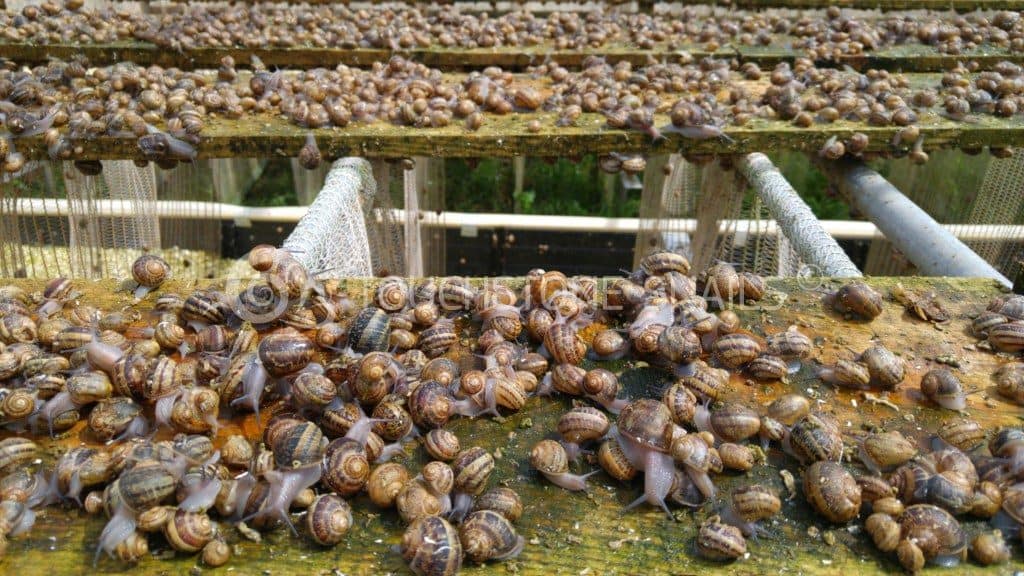Snail farming, also known as heliciculture, is a growing agricultural venture that holds great potential in Nigeria. With its diverse ecological zones and favorable climatic conditions, Nigeria provides an ideal environment for snail farming.
This article aims to explore the opportunities, benefits, and essential guidelines for establishing a successful snail farm in Nigeria, while also highlighting its significance in promoting sustainable agriculture.
-
The Potential of Snail Farming in Nigeria:
Snail farming presents a remarkable opportunity for farmers in Nigeria due to several factors:
a) High Market Demand: Snails are a delicacy enjoyed by many Nigerians and are in high demand across the country. The domestic market alone cannot meet this demand, creating an opportunity for snail farmers to fill the supply gap.
b) Nutritional Value: Snails are a rich source of protein, iron, calcium, and other essential nutrients. With an increasing focus on healthy eating, snail meat is gaining popularity among health-conscious consumers.
c) Economic Viability: Snail farming can be a profitable venture, requiring relatively low investment and offering a high return on investment. The low cost of production and the ability to utilize small spaces make it an attractive option for both rural and urban farmers.
-
Choosing the Right Snail Species:
Selecting the appropriate snail species is crucial for successful snail farming. In Nigeria, the most commonly farmed species are the Achatina achatina (giant African snail) and Achatina marginata. These species thrive in the country’s tropical and subtropical regions and are well-suited to the local climate.
-
Snail Farming Setup and Management:
a) Housing and Enclosures: Snails require a conducive environment to thrive. Constructing well-ventilated housing with suitable substrate, such as soil or sawdust, helps maintain humidity levels and provides a comfortable habitat for snails.
b) Feeding and Nutrition: Snails are herbivores and feed on a variety of plants, fruits, and vegetables. Offering a balanced diet rich in calcium, such as green vegetables, fruits, and ground eggshells, ensures healthy growth and shell development.
c) Pest and Disease Management: Regular monitoring and preventive measures are essential to minimize the risk of pests and diseases. Proper hygiene, regular cleaning of enclosures, and prompt removal of sick or dead snails are vital practices to maintain a healthy snail population.
-
Marketing and Distribution:
To succeed in snail farming, effective marketing strategies are crucial. Consider the following steps:
a) Networking: Establish connections with local restaurants, hotels, supermarkets, and grocery stores to create a steady market for your snails.
b) Online Presence: Create a website or social media profiles to showcase your farm and reach a wider audience. Utilize digital marketing techniques, such as search engine optimization (SEO) and social media advertising, to increase your online visibility.
c) Value Addition: Explore opportunities for value addition by offering processed snail products, such as snail meat, snail powder, or canned snails, to cater to different market segments and extend the shelf life of your products.
Conclusion:
Snail farming presents a lucrative opportunity for sustainable agriculture in Nigeria. With the country’s favorable climate, growing market demand, and economic viability, snail farming has the potential to improve food security, generate income, and promote rural development. By following proper farming practices, selecting suitable snail species, and implementing effective marketing strategies, aspiring snail farmers can establish successful ventures that contribute to Nigeria’s agricultural sector while reaping the benefits of this promising industry.

 Billionaire Watch2 weeks ago
Billionaire Watch2 weeks ago
 Startups4 weeks ago
Startups4 weeks ago
 News4 weeks ago
News4 weeks ago
 News4 weeks ago
News4 weeks ago
 Bitcoin4 weeks ago
Bitcoin4 weeks ago
 Naira4 weeks ago
Naira4 weeks ago
 Forex3 weeks ago
Forex3 weeks ago
 Treasury Bills4 weeks ago
Treasury Bills4 weeks ago















